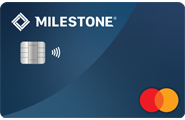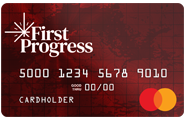Table of Content
Key Takeaways
- The cosigner is an individual who agrees to pay back certain debts if the primary borrower is not able to honor its obligations. This means that the cosigner is responsible for the loan repayment.
- Becoming a cosigner can harm relationships. This can happen if the primary borrower fails to meet its financial obligations and therefore, the cosigner is forced to pick up the tab.
- If you become a cosigner it is helpful to check the balance of the debt from time to time. Banks usually allow cosigners to get messages or alerts about the loan balance.
Getting approved for the best credit cards is usually straightforward if you have great credit.
However, for those with a history of serious credit issues or those trying to build credit for the first time, it can be a challenge to get approved. In these cases, many people turn to a cosigner for help.
Can You Cosign For a Credit Card?
A cosigner is someone with (usually) decent credit who formally agrees to pay back a certain debt if the primary debtor is not able to pay it back. Technically, the cosigner becomes a guarantor and a joint account holder so that the lender has a fallback option to collect the debt.
In a credit card cosigning situation, there will be two involved parties with regard to the use of the card and the repayment of any outstanding card debt:
- The primary cardholder. The primary cardholder enjoys the same privileges and obligations as any credit cardholder. This includes paying back all credit card debts that he incurs while using the card. In case the credit cardholder can’t repay the debt, the payment obligation transfers to the credit card cosigner (similar to what happens to a cosigner in a loan).
- The cosigner. A credit card cosigner assumes the same responsibility and liability as with any other type of debt. If the primary cardholder cannot (or refuses to) pay the credit card debt, the card company will demand payment from the cosigner.
When you sign as a cosigner, you're usually committed for the entire term of the account. You can't back out just because you realize it was a risky financial decision. Some lenders may offer a cosigner release option, but this is typically only available for certain types of loans, like student loans.
In such a case, when the primary account holder is able to show he/she is a responsible borrower and timely with payments, the lender can release the cosigner from liability.
Top Offers
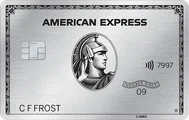

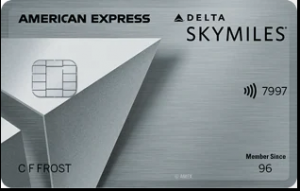
Top Offers From Our Partners
Co-Signers: The Things You Should Consider
Before asking someone to co-sign your credit cards, it’s important to understand the risks, responsibilities, and long-term effects it can have on both of your financial futures.
1. Cosigner May Become The Primary
Being a cosigner means more than vouching for someone’s ability to repay a credit card debt. It also means taking full responsibility to repay the debt in case the primary account holder fails to make payment.
If the cardholder stops paying the card company, you will become responsible for assuming the monthly payments.
Depending on which state you are in, in case of default, the lender could file a case against both the borrower and cosigner. In case the lender wins in court, he could try to garnish your bank account or wages or attach a lien on your properties including your own home.
2. The Credit Bureaus Will Tie The User’s Credit Score to Yours
When you cosign for somebody’s debt, the credit bureaus will treat you the same as the main borrower. This means that the transaction will reflect on your credit history as well as in the credit history of the main borrower.
If the borrower does any of the things that affect a credit score, it will also affect yours. So, if he misses payment deadlines, use too much of the credit limit or incur too much debt in relation to his income, your credit score will bear the impact of these negative actions.
You must remember this before you agree to help somebody along these lines. Once you cosign for a borrower, you should make sure that he can make the payment on time and that he does it consistently. If that is something that your schedule or situation will not permit, then you should best decline to protect yourself.
Top Offers
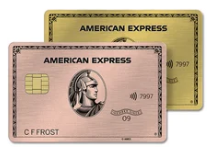

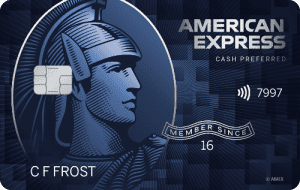
Top Offers



Top Offers From Our Partners
3. Can Affect Your Relationship
You may have agreed to cosign a loan or a credit card to help one of your family members. This is a good investment to enhance and strengthen your relationship with them.
While this may be a family matter, you still need to take precautions because, in the end, a misunderstanding because of money or unpaid debts can do a lot of damage to the relationship.
There is a high percentage of borrowers who fail to pay their credit, get buried in debt and go through financial difficulties.
It could happen to anyone and your family member (who you want to help) is not at all immune to this. In case the borrower fails to pay the debt and defaults or even if he only skips one or two payments, it could still strain your relationship.
Of course, you can wish that it doesn’t happen but the possibility is always there. And in case the situation does happen, we hope it does not permanently damage the relationship.
4. You Can Also Get Monthly Statements
Lenders will normally send monthly statements just to the primary borrower.
If you’re a cosigner for a credit card and the bank is not sending you the statements, you can ask the card company to start sending you a copy of the monthly statements. By being able to check the statements regularly, you can see if the borrower is missing his payments.
5 Important Tips For Co-signers
In case you are in a situation where you can’t refuse a request to be a cosigner for a loan, you should take steps to offset potential troubles.
Here are 5 ways to protect yourself:
Check The Account Balance From Time To Time
Whether it’s your child, a brother, another relative or friend, the borrower might still have very elementary personal finance skills.
For this reason, you should monitor the account online just to make sure that payments come in on time. (Before you give your signature, you should make sure that this is something that you will be able to do.)
You can arrange with the lender to send you text, email or phone alerts to remind you when the payment is due and when the card company has already posted the payment.
This way, you can monitor the account without taking too much of your time and gives you enough lead when it’s necessary to step in and do some remedial actions.
Review The Agreement Together
It would be very good if you can sit down with the prospective borrower and talk about the implications of not being able to make credit payments on time. Go through the agreement together to make sure he understands the relevant provisions.
Once you get your hands on the card application or loan contract, read it over together. You have to really know what you will be getting into.
The two of you should have a clear understanding of the terms, especially the due dates for the monthly payments and the penalties and consequences of paying late.
Such meticulous preparation should help the primary borrower understand how to responsibly manage the account and what he needs to do to keep the account in good standing.
Advise him or her to not go beyond 30% of the credit limit and to pay off everything each month (on time) to avoid fees, interest, charges, and harm to both your credit scores.
Sometimes, you want to believe that your relationship is so strong that when something wrong happens, it will remain stable. The truth is, money issues have severed many close ties because a debt that a borrower does not pay could severely impact a relationship in the most negative way.
It’s a reality you have to accept and proof of that are the hundreds of relationships that a situation like this has broken.
Have a Collateral
What would give the lender peace of mind if the applicant is a rookie borrower or one who has had past debt problems?
For a credit card, you can ask to temporarily keep an item of value such as a piece of jewelry. If the credit card holder defaults on the payments, you can sell it and apply the proceeds to the outstanding balance.
Top Offers



Top Offers



Top Offers From Our Partners
Think About Yourself First
You may be the kind of person who can’t refuse anyone asking for help but before you co-sign any loan, think of your own financial interest first.
You may be in that stage when your credit score could not afford to take a hit because you’re setting yourself up for a big loan like a home mortgage. Or maybe you’re in the middle of a transition such that the home budget has gone down a little, you might want to pass on cosigning on someone’s credit card and positioning yourself to a possible unplanned debt or expense.
Have An Exit Plan
Any banker or financial advisor would tell you that any time you take out a loan, you should plan out in advance an exit strategy.
Do you have some arrangements in place to get the card paid off in a few years? What makes you so confident that you can easily retire this line of credit one day? Is there a way to close the account unilaterally later or at least a remedy to stop future charges? Will the lender inform you if there is an increase in the line of credit or interest rate?
You should know the answers to these questions before you co-sign anything. Also, make sure that the lender will give you online access, or at least mail paper copies of the statements to you so you can keep track of the account.

